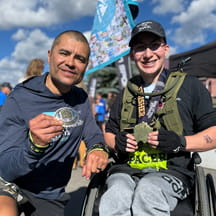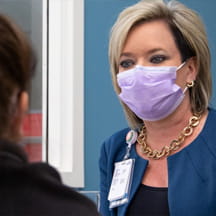Early in her medical career, Danielle Ofri, M.D., Ph.D., frequently thought she should write down significant experiences. Unfortunately, desire and time for personal goals rarely aligned. More than 10 years into her career, Ofri, who practices at Bellevue Hospital in New York, took the steps to share her experiences and insights through writing. In addition to her medical practice, Ofri now writes for The New York Times and Slate about the doctor-patient connection, is the editor-in-chief of the Bellevue Literary Review and has authored seven books.
Ofri will be a featured speaker at the Quality and Safety in Children's Health Conference, March 18, in Atlanta. Her presentation will include insights from her latest book, "What Patients Say, What Doctors Hear."
How did you make time for writing? I took a year and a half off to travel and spent time sorting out my experiences. I wrote down my stories of medical training with no plan to write a book. When I got back to Bellevue, I started taking writing classes and publishing in literary journals. It gave me a place to contemplate what the stories of doctor-patient interactions really mean.
Why did you focus on the patient side of the conversation? I had an experience talking with a doctor and a patient separately and getting completely different stories. It was like they were in two entirely different spaces! I was very taken with the statistics that doctors cut off their patients at an average of 10 to 12 seconds. I wondered what were we missing when we jumped right in.
How did your experiences affect how you practice and advise physicians? I was in the hospital after the birth of my first child and couldn't reach the pitcher of water. I remember thinking that was the most important thing in the world at that moment. On rounds, a doctor may consider a request for water a distraction, but now I recognize the ginger ale or box of tissues may be the most important thing for that patient at the moment. We also have to consider how many errors of diagnosis and treatment occur when we doctors cut patients off.
What can providers do to get the most out of conversations? We need to recognize the doctor-patient conversation as the most important tool in medicine. Doctors are trained to drive the conversation. We learn to make a diagnosis, do a treatment and solve the problems. Patients are socialized to let the doctor take the lead. We need to be mindful of these patterns, not dominate the conversation, and recognize the patient's important concerns may get lost in the shuffle.


